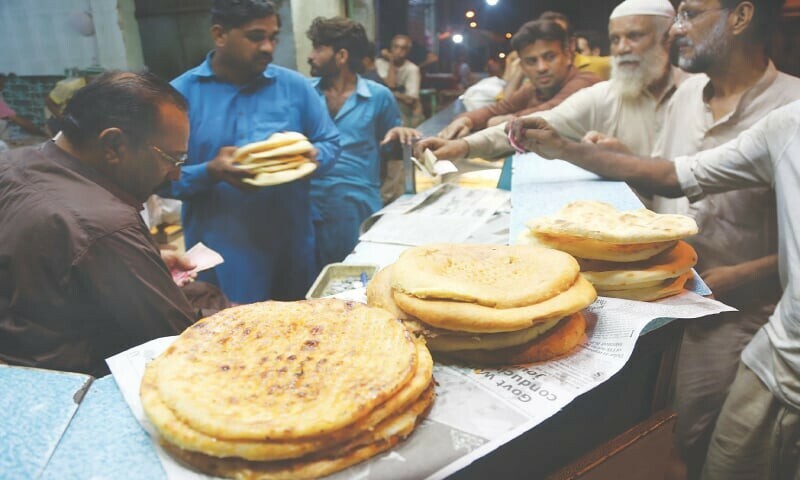
[ad_1]

The Islamabad High Court (IHC) on Thursday suspended till May 6 a recent city administration notification that had reduced the prices of roti.
On April 14, the Punjab government slashed the price of roti, followed by a similar decision by the Islamabad administration.
The Punjab government had reduced the prices of roti from Rs20 to Rs16 while the price of naan was cut from Rs25 to Rs20. However, the All Pakistan Naanbais Association (Apna) had rejected the move.
In the following week, 14 people were arrested in the Lahore district for flouting the notification of new prices of roti and naan at tandoors. The teams also sealed various tandoors. Two days later, another 16 were taken into custody in Rawalpindi district for not complying with the new rates as the city observed a partial strike against the government decision.
On April 19, the All Pakistan Naanbai Association (Apna) ended their strike, agreeing to sell roti at Rs16 and naan at Rs20 after being assured that their union leader would be released.
A day ago, the tiff between the capital administration and the Naanbai association landed in the IHC.
IHC Justice Tariq Mehmood Jahangiri heard a petition challenging the legality of the government notification and admitted the petition for hearing, summoning Islamabad Deputy Commissioner Irfan Nawaz Memon before the bench today (Thursday).
The reduction was challenged by Sajjad Ali, the president of the
Capital Nan Bhai Welfare Association — a union comprising over 3,000 tandoors in Islamabad. As per the petitioner, just four months ago, the price was fixed at Rs25 and Rs30 for roti and naan, respectively.
Justice Jahangiri presided over today’s hearing, where Barrister Umer Ijaz Gilani appeared as the counsel for the petitioner. While representatives of the district administration were present, the Islamabad DC failed to appear before the court.
The hearing
At the outset of the hearing, a spokesperson of the district administration contended that district coordination officers (DCOs) had been given the authority to set the prices under an amendment to the relevant laws.
The petitioner’s lawyer said that the federal price control fell under the prime minister’s monitoring, to which the spokesperson replied, “The controller general [of] prices and supplies will be appointed by the federal government.”
He said the assistant controller was to be appointed by the officer authorised to do so by the government, adding that the controller general was empowered to set the prices.
Here, Barrister Gilani argued that the notification had been issued under section 3 of the Price Control and Prevention of Profiteering and Hoarding Act 1977, which did not give the controller general the power to set prices and was not referred to in the notification.
At one point in the hearing, Justice Jahangiri asked whether a roti weighing 120 grams was being sold at Rs25 in Punjab, to which the Islamabad spokesperson replied that the said rate was from another province.
“Flour is expensive here, [house] rent is high here,” Gilani lamented.
The spokesperson informed the court that the officer concerned was not present and requested the court to accept para vise comments and adjourn the hearing.
The judge then asked him, “Did you ask the tandoor owners how much was flour costing them or issued the order (notification) merely to appease the public?”
Subsequently, the court suspended the notification till the next hearing on May 6, seeking detailed responses from the respondents by then.
[ad_2]
Source link






